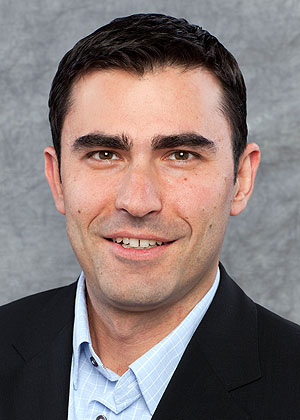REDMOND, Wash. – Feb. 11, 2013 – If the plural of anecdote is data, as the saying goes, then it goes without saying that big data must be chock full of good stories.
Few know this better than Dan Vesset, program vice president of IDC’s Business Analytics research. He (and his Twitter account) is flush with examples of the kinds of close-up stories peeking through masses of data.
Here are a few notable big data nuggets from the mouth (and tweets) of Vesset:
Book clubs and peanut eaters: America, by the numbers.
More people are injured on toilets than by skiing or snowboarding. More households have dogs as pets than cats, but cat lovers are more likely to have multiple pets. Traffic congestion wasted more time for drivers in Los Angeles than in any other city. Americans are eating more peanuts and drinking less coffee. More Americans belong to a fantasy sports league (10.6 million) than to book clubs (5.7 million). Book club members are outnumbered by avid bird-watchers (5.8 million). According to the New York Times, these and other facts are part of the 2013 edition of the Statistical Abstract of the United States, published by the government since 1878.
GOAL!
Vesset said big data made its way to European football (or soccer, as the Americans call it) with a recent analysis of all major football leagues, what time in the game the teams made substitutions, and the outcome of each game, all to try to determine the best time to make a sub to result in a goal. “That’s good data for the coaches,” Vesset said.
Scientist. Data Scientist.
Forget Bond, James Bond – the Harvard Business Review has officially declared the data scientist the “sexiest job of the 21st century.” It’s not hard to imagine considering the big data market is growing an estimated 31 percent annually, which means major job opportunities, Vesset says. This will no doubt leave former top sexy job contenders (firefighters, actors, athletes, models, doctors, nurses) both shaken and stirred.
Ice cream, you scream?
Data may have a reputation for being cold and hard, but big data afforded the Cincinnati Zoo some ice cream-inspired warm fuzzies. The zoo analyzed its transactions to find out when the most ice cream was sold. Surprisingly, it was much earlier in the day than previously thought. Based on this data the zoo was able to open more carts, and open them earlier in the day, to maximize dessert demand – and revenue to the zoo. “It wasn’t a huge data set, obviously it’s ice cream sales at a single zoo, but the point is that the data allowed them to look at information differently,” Vesset said. “Instinctively they thought it would be later in the day, but data guided them to the right decision.”
Science (non) fiction.
Hollywood loves big data on the big screen. There was Brad Pitt in Moneyball as “the poster boy for what can be done with analytics and big data,” Vesset said. But remember Tom Cruise in Minority Report, working as a policeman in a future where crimes are predicted before they happen so they can be prevented? And Jude Law, the super smart machine in Artificial Intelligence? “So much of what we’re doing now does come from entertainment, and what was science fiction before now becomes reality,” Vesset said.





